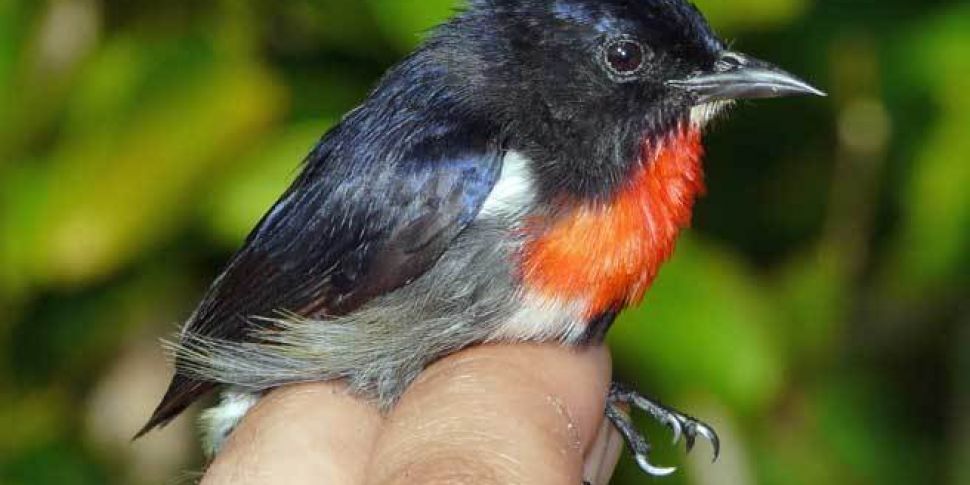Scientists from Trinity College in Dublin have discovered a new species of bird in Indonesia. Zoologists identified a currently unrecognised species from the threatened Sulawesi region.
They are proposing that the colourful bird - which looks like an exotic robin - should be called the 'Wakatobi Flowerpecker'.
This follows numerous expeditions to South-east Sulawesi and its offshore islands. The group have published evidence stating that a population of birds from the Wakatobi Islands should be recognised as a unique species.
Despite looking similar to the Grey-sided Flowerpecker, from mainland Sulawesi, Wakatobi Flowerpeckers are significantly larger and distinct.
The genetic information from this study revealed that the two flowerpecker species did not mix or interbreed - which suggests that they do not cross the 27 kilometre stretch of ocean between them.
A comparison of the Grey-sided Flowerpecker (below) and the new Wakatobi Flowerpecker (above)
These findings have been published in the journal PLOS ONE. They suggest that the lack of research and particular absence of genetic analyses performed on similar birds has likely led to a significant underestimation of the number of species in the Sulawesi region.
This means, they suggest, that there are many more bird species awaiting description. The team zoologists are calling for more detailed study of the bird populations in the Sulawesi region as a result.
"Accurate data on the distribution and status of bird species are regularly used to inform conservation practices and industrial development. As humans are changing the natural environments of Sulawesi at an incredibly fast rate, the discovery and description of species in the region is of major importance" said lead author of the journal article, and PhD student in Zoology at Trinity, Seán Kelly.
"This study also highlights the need for integrative, multi-disciplinary research in the region. Without this we will likely fail to recognise and appreciate the true bio-diversity of this remarkable region".
"Furthermore, we run the risk of losing evolutionarily distinct species before we can even discover or enjoy them" he added.










